Drastic drop in NO2 near schools in lockdown shows what is achievable

Levels of Nitrogen Dioxide (NO2) fell by just over 40 per cent on main roads in the vicinity of schools in England during the first month of UK’s initial lockdown in early 2020, according to a study carried out at the University of the West of England (UWE Bristol). It highlighted how more people working from home or walking to school can reduce levels of the toxic pollutant, which proves particularly dangerous for children whose lungs are developing.
UWE Bristol researcher Louis Brown, who is part of the University’s Air Quality Management Resource Centre, conducted the study as part of his thesis. He gathered data from AURN (Automatic Urban and Rural Network) monitoring stations, which are set up across the UK. For this work, he selected 93 of the stations that were within 500 metres of primary and secondary schools across England.
Analysis of data taken from the stations on main roads showed a 41% decrease of the pollutant compared to pre-lockdown levels. Data from stations away from main roads but still affected by traffic fumes blown in the wind showed NO2 levels were down by just over a third.
A significant amount of NO2 in urban areas is produced from traffic fumes. Inhaling elevated concentrations of the gas in the short term can lead to aggravation of existing respiratory conditions, nose and throat irritation, as well as a possible increase in hospitalisation cases. Exposures over the longer term have also been linked to a series of more serious health issues like bronchitis and greater susceptibility to other respiratory system infections.
Due to their developing organs, children are particularly vulnerable to the negative effects of air pollution inhalation. Louis Brown said: “Children are affected the most by air pollution during school drop-off because mornings are the worst time for car pollution. This means you are taking the most vulnerable elements of society and exposing them to the worst of the day’s pollution.”
He added: “The height of a child also has a bearing on how much pollution they inhale, because smaller children are closer to exhaust pipes and will be more exposed.”
The study, he said, shows what is achievable in terms of reducing children’s exposure to toxic air pollution if more people, outside of a pandemic lockdown, were able to work from home and, if possible, use their cars less for the school run.
As electric cars become more affordable and prevalent, concerns about NO2 from car pollution will diminish. However, these cars will still produce the same harmful particulates as combustion engine vehicles. “Electric cars will still produce dangerous particulate matter, caused from the wear and tear of tyres and brake pads. Some experts are developing methods of capturing those particles, but until these are commercialised, these particles will continue to cause damage to our health,” said Louis.
Louis’ findings are set out in a paper, set to be published in Science of the Total Environment, a scientific journal covering environmental sciences.
Related news

15 December 2025
UWE Bristol rises eleven places in People & Planet University League
UWE Bristol has risen to 14th in the People & Planet University League (UK), a jump of eleven places.

12 December 2025
UWE Bristol’s environmentally conscious and student-focused accommodation wins three awards
Purdown View, the world's largest certified Passivhaus student accommodation development, has been recognised at Property Week Student Accommodation Awards.

20 November 2025
UWE Bristol ranked among top 12 per cent of universities globally for sustainability
UWE Bristol has climbed over 400 places in the QS World University Sustainability Rankings 2026, which evaluates universities on a range of environmental and social impacts.

06 November 2025
UWE Bristol welcomes West of England Mayor for annual Green Week
Helen Godwin, Mayor of the West of England, visited UWE Bristol during its annual Green Week to see the sustainability-driven research, innovation and skills initiatives that are helping to power the growth of the region’s green economy.
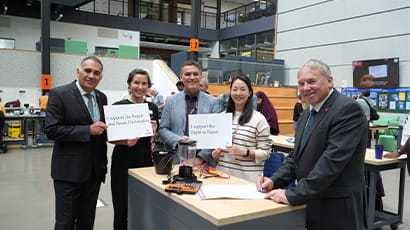
16 October 2025
UWE Bristol signs Repair and Reuse Declaration in commitment to sustainable initiatives
UWE Bristol is the first UK university to sign the Repair and Reuse Declaration as a whole institution, a call to legislators and decision makers to tackle climate change through greater repair and reuse support.

15 October 2025
UK food needs radical transformation on scale not seen since Second World War, new report finds
A new report from the Agri-Food for Net Zero Network+ finds urgent action on food is needed if the UK is to reboot its flagging economy, save the NHS billions, ensure national food security, and meet climate commitments.
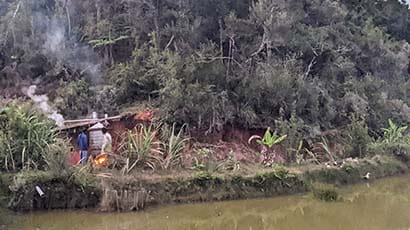
24 September 2025
UWE Bristol to help protect threatened forest in Madagascar in £800k project
UWE Bristol is a partner in a groundbreaking project awarded almost £800,000 in funding to protect one of Madagascar’s most precious and threatened forests.
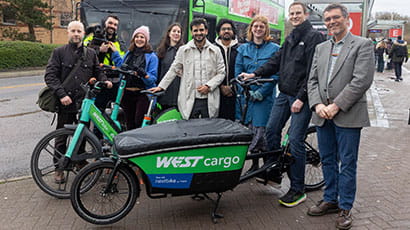
24 February 2025
WESTbusStop+ makes sustainable travel more convenient
A new WESTbusStop+ bringing together buses and other ways to travel has been officially opened at UWE Bristol’s Frenchay campus.
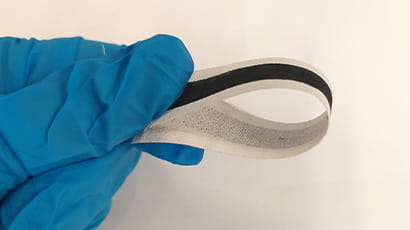
03 January 2025
Big leap forward for environmentally friendly ‘e-textiles’ technology
Research led by UWE Bristol and the University of Southampton has shown wearable electronic textiles (e-textiles) can be both sustainable and biodegradable.
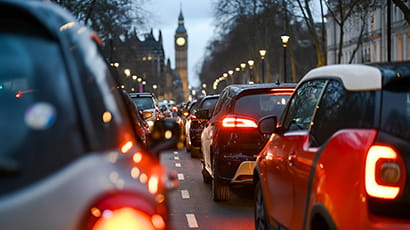
28 November 2024
Work of UWE Bristol academics features in Government report on air quality measurement
Two UWE Bristol academics have made contributions to an influential Government report on the measurement of air pollution.
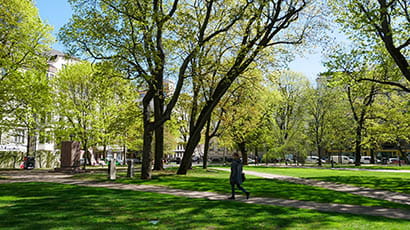
27 November 2024
Traffic noise reduces the stress-relieving benefits of listening to nature, study finds
Road traffic noise reduces the wellbeing benefits associated with spending time listening to nature, researchers have discovered.
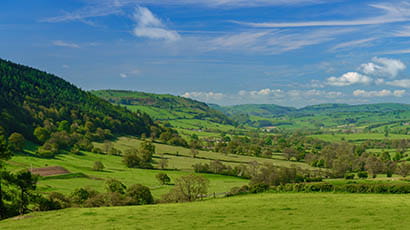
15 November 2024
Grasslands project led by UWE Bristol academic to support UK’s bid for net zero emissions
A UWE Bristol researcher will lead a £4.7 million project focused on the management of UK’s grasslands aimed at supporting efforts to achieve net zero emissions by 2050.






